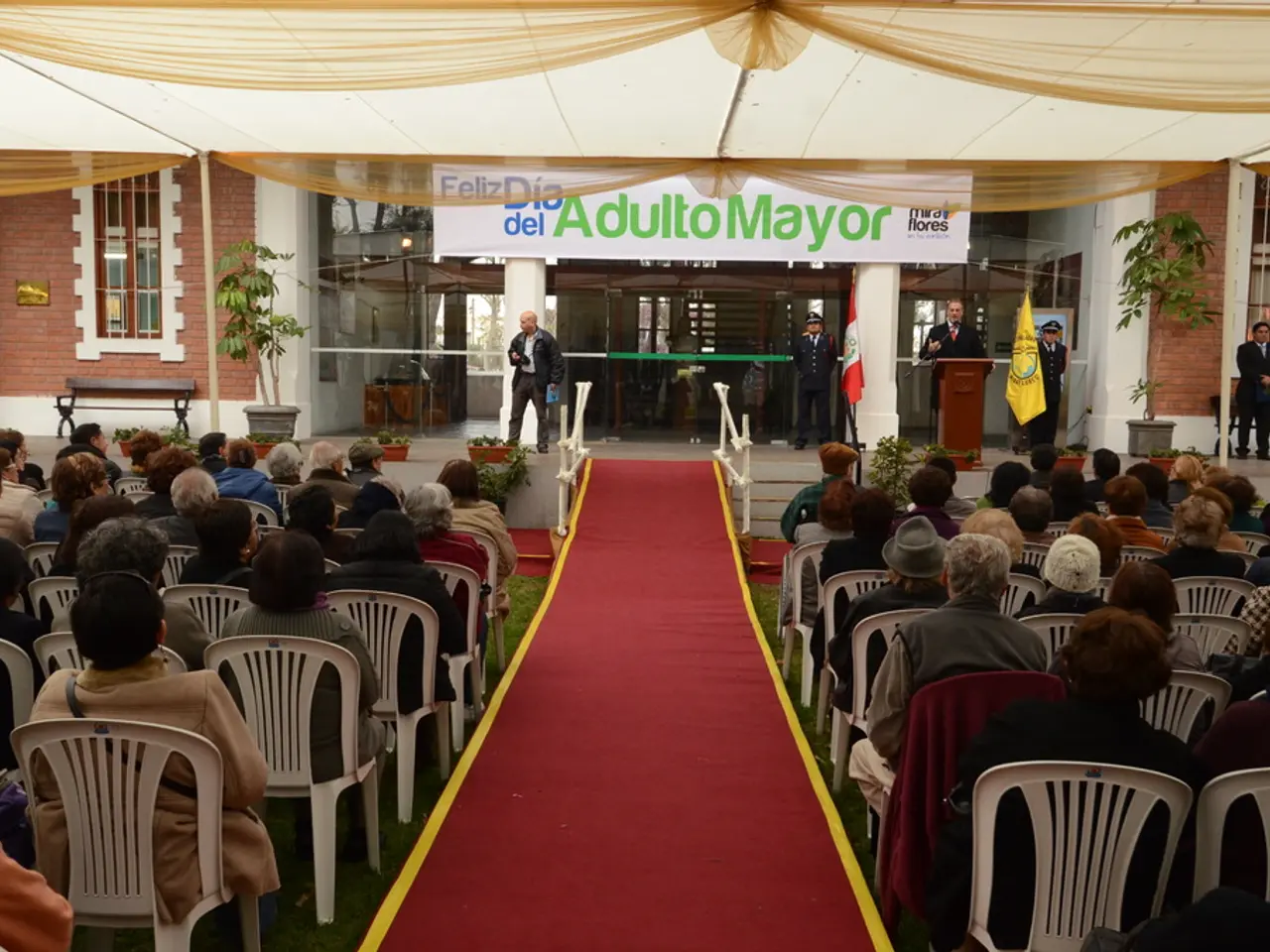Workforce at local businesses ordered to be utilized by Denis Pasler
In the Sverdlovsk Oblast of Russia, a region known for its industrial prowess, authorities are taking significant steps to address labor shortages and support local enterprises. The region, which has seen some businesses reduce staff or move to part-time work, is facing a challenging landscape marked by a lack of interest in factory jobs among younger generations and military deployments.
To tackle this issue, the authorities are employing a multi-faceted approach that includes international labor recruitment, expansion of production capacities, and the establishment of new consulates.
## International Labor Recruitment
The region is actively recruiting workers from countries such as India, Sri Lanka, and North Korea, with a focus on filling the gap in highly skilled and qualified labor, particularly in sectors like metallurgical and mechanical engineering. The President of the Ural Chamber of Commerce and Industry, Andrei Besedin, has highlighted the potential for a significant influx of Indian specialists, although the Russian Labor Ministry has set a quota for 71,817 Indian workers nationwide in 2025.
## Expansion of Production Capacities
Enterprises in the region are expanding their production capacities, partly due to the ongoing war in Ukraine and the government's policy of import substitution, which increases the demand for labor.
## Establishment of New Consulates
To support the influx of foreign workers, a new Indian Consulate General is being established in Yekaterinburg. This will facilitate logistical and administrative support for incoming workers.
While these measures aim to address layoffs indirectly by ensuring a stable labor supply, the Governor of Sverdlovsk Oblast, Denis Pasler, has also instructed the efficient use of labor resources in Ural enterprises. The Department of Labor and Employment is implementing measures to support employees affected by layoffs or reduced working hours, including retraining programs and suitable vacancy finding.
Moreover, enterprises planning to reduce staff are provided with assistance in finding investors, developing cooperative ties, and submitting applications for support from federal and regional industrial development funds. The Ministry of Industry and Science of Sverdlovsk Oblast is also implementing measures to maintain financial and economic stability.
Denis Pasler emphasized the importance of protecting workers' rights and providing clear prospects for future employment. The recruitment of foreign workers is regulated by quotas set a year in advance, requiring companies to obtain permission from the Interior Ministry to hire visa workers. This ensures that foreign workers are employed legally and under controlled conditions. Each foreign specialist must also obtain a work visa and permit, which helps in tracking and managing the rights of migrant workers.
Despite these efforts, challenges remain, such as the ideological misstep in previous years that led to a reluctance among younger generations to pursue factory jobs. However, with these measures in place, the authorities and businesses in Sverdlovsk Oblast are working together to ensure the region's continued industrial growth and the protection of workers' rights.
The authorities in Sverdlovsk Oblast are recruiting workers from countries like India, Sri Lanka, and North Korea to fill the gap in skilled labor within the region's industry, especially in sectors such as metallurgical and mechanical engineering.
To facilitate the influx of foreign workers, a new Indian Consulate General is being established in Yekaterinburg, providing logistical and administrative support for incoming workers.




